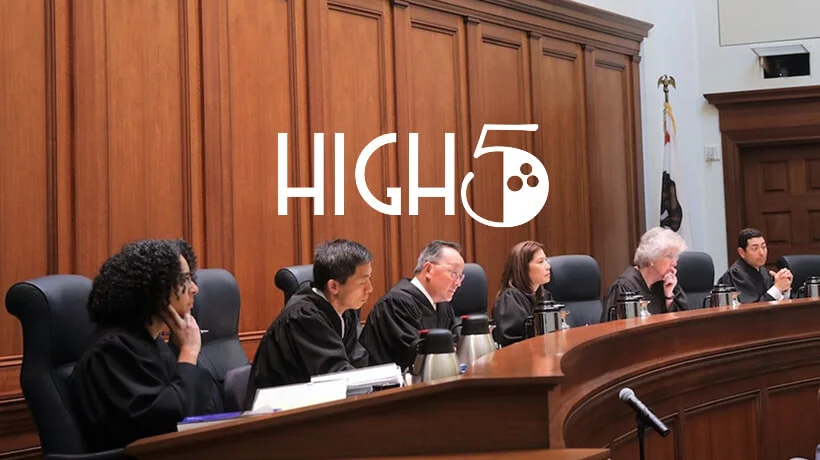High 5 Entertainment just hit a wall in California court, where the Superior Court of San Francisco County denied four company motions in an ongoing dispute about its sweepstakes operations. Judge Christine Van Aken wasn’t having any of High 5’s attempts to dodge court proceedings, finding the company’s arbitration agreement “unconscionable” under California law.
The whole mess started when plaintiff Thomas Portugal filed his lawsuit back on December 30, 2024. He’s going big—seeking public injunctive relief that would completely shut down high5casino.com operations.
Why This Case Targets Sweepstakes Models
Portugal’s claiming High 5’s sweepstakes operations cross the line into illegal gambling under California law, which directly attacks the company’s entire business model. And he’s not wrong to worry about it.
California doesn’t mess around with gambling regulations. Many sweepstakes models that seem innocent enough actually violate state law once you dig into the details. This lawsuit is just part of a much bigger trend—regulators nationwide are cracking down hard on these operations as states decide they’ve had enough of the gray area gaming.
What High 5’s Failed Legal Strategy Included
High 5 threw everything at the wall, trying to force the dispute into private arbitration instead of public court while also moving to strike Portugal’s amended complaint entirely. Two additional motions attempted to quash service of summons.
None of it worked.
The court found no “clear and unmistakable delegation” of authority to arbitrators in High 5’s terms and conditions, which was pretty damning. Van Aken identified both procedural and substantive unconscionability in the arbitration agreement—basically saying the contract was unfair from multiple angles.
The procedural problems included the contract’s adhesive nature and lousy disclosure, while substantive issues involved a restrictive one-year limitations period that heavily disadvantaged consumers. Cost-sharing requirements and prohibitions on public injunctive relief made things even worse.
How This Ruling Changes the Game
Now High 5 has to defend itself in California court instead of hiding behind private arbitration, which means higher costs and much more public scrutiny. Judge Van Aken specifically noted California’s “significant interests in enforcing its public policies concerning gambling”—not exactly subtle about where the state stands.
High 5 already bailed from six US states earlier this year due to regulatory pressure. This ruling suggests more states might follow California’s aggressive playbook.
Other sweepstakes operators are definitely paying attention since this could set important precedent for similar lawsuits. The decision shows courts won’t automatically rubber-stamp arbitration clauses in gaming disputes, especially when companies try hiding behind unfair contract terms.







